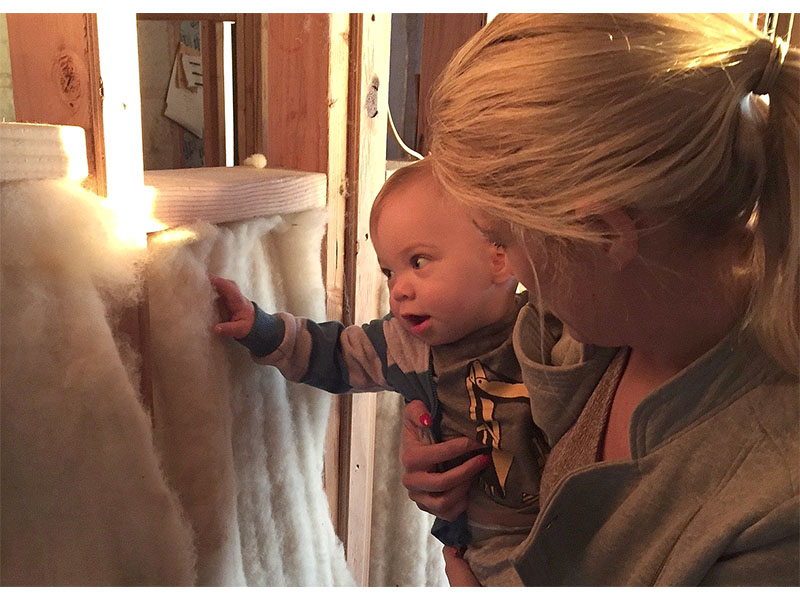
Americans spend almost 90 percent of their time indoors. However, the air we breathe indoors is typically two to five times more toxic than the air outside due to poor ventilation and off-gassing of toxic chemicals from products ranging from flooring to paint to furniture. One way to improve air quality – and our health and well-being – is to choose Mother Nature’s own perfect home insulator: natural wool insulation.
Wool has provided the ideal protective coat for sheep for thousands of years, making it ideally suited for insulating the home. It’s an excellent thermal and acoustic insulator and contains no harmful chemicals or additives. In fact, it’s so safe that toddlers can snuggle in it. It also excels at managing moisture and is fire resistant, both important safety considerations.
Because of the inherent characteristics in wool fibers, wool insulation is able to trap formaldehyde, nitrogen oxide and other volatile organic compounds (VOCs) – preventing them from escaping into the air. As a result, wool insulation effectively acts as an air cleaner within a living space. A Harvard study showed that people experience increased cognitive function when exposed to spaces with low VOC levels and higher ventilation rates – which wool insulation helps to achieve.
Moreover, because wool insulation can absorb up to 35 percent of its weight in moisture, it helps to eliminate condensation and moisture within the home – significantly lowering the chance for rot, mold and mildew formation, and the associated maintenance and health issues. And, unlike most other types of insulation, no protective gear is needed when installing or interacting with wool insulation.
When it comes to performance, wool is one of the most effective insulating materials available today. The thermal resistance, or R-value, of most sheep’s wool batts is about R-3.6 per inch, similar to that of other fibrous insulation types. However, because wool insulation can absorb and release moisture, it often performs even better than its rated R value.
And, in contrast to most synthetic insulation, sheep’s wool insulation is highly durable, lasting for up to 50 years. In addition, wool’s natural breathability helps it retain its thickness and avoid settling over time. When it does reach the end of its useful life, it can be composted and is fully bio-degradable.
If you’re looking for a high performance, eco-friendly and long-lasting insulation material that will help to improve air quality within your home, consider natural wool insulation. While it costs a little more than traditional insulation, it will more than pay for itself in longevity, lower energy costs, better health – and offers greater peace of mind.
To learn more about natural wool insulation, visit www.havelockwool.com.
